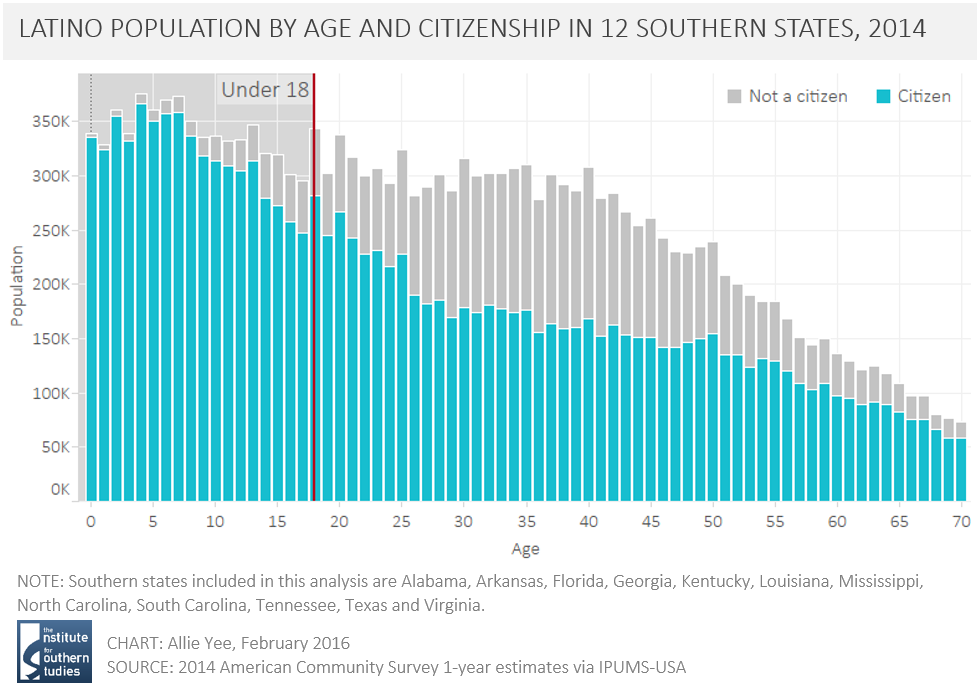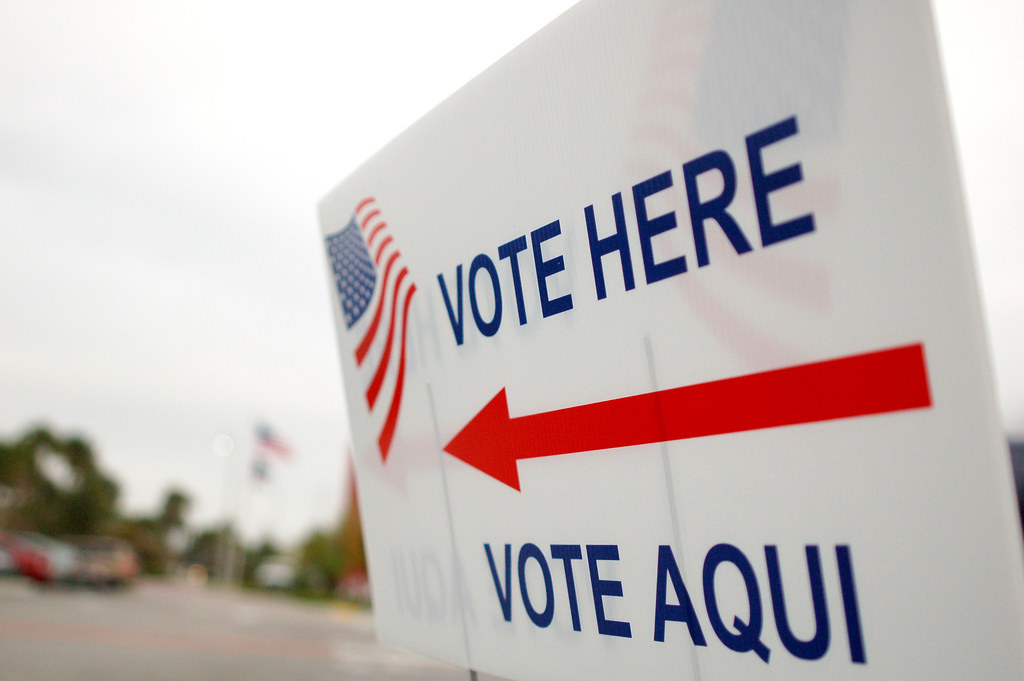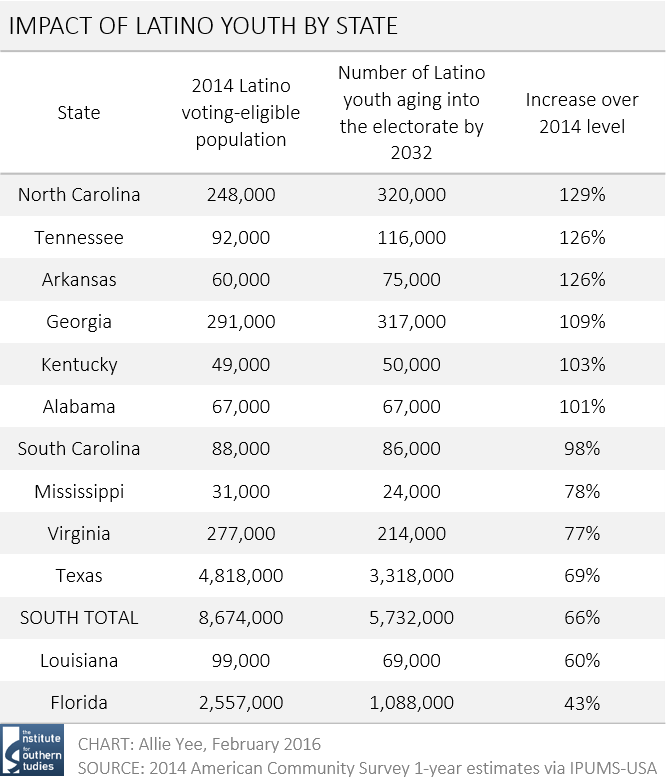As Southern states prepare for a string of 2016 presidential primaries, a new Institute for Southern Studies report finds that young Latino voters are a growing demographic in the South's increasingly diverse electorate.
"The Future of Young Latino Voters in the South" estimates that more than 1.6 million young Latinos who are citizens living in Southern states will turn 18 by 2020, boosting the clout of the region's Latino electorate in the coming years.
While Latino communities have grown rapidly across the South, their voting power has been constrained in past years by the fact that many lack citizenship status, and that about a third are youth under the age of 18.
But the Institute's analysis of Census data reveals that 94 percent of Latinos under 18 currently living in the South are citizens, and they will become eligible to vote in significant numbers in the coming years.
 See an interactive, state-by-state version of this chart here.
See an interactive, state-by-state version of this chart here.
As these Latino youth become eligible to vote, the South's Latino electorate is expected to expand dramatically. Among the reports findings:
- Between 2014 and 2016, 500,000 Latino youth in the South will have turned 18 and become eligible to vote, adding to the region's 8.7 million voting-eligible Latinos in 2014.
- By 2020, over 1.6 million young Latinos will have joined the electorate in the South. By 2024, the number of young Latinos aging into the electorate will reach nearly 3 million.
- Young Latinos will have grown the overall Latino electorate in the South by two-thirds by 2032, the year when Latinos who were under age 1 in 2014 will become first-time voters.
- Latino youth will more than double the Latino electorate in several Southern states in the next two decades, including in the political battlegrounds of Georgia and North Carolina.
The growth of young Latino voters varies by state, with the largest total increases in the traditional immigrant hubs of Florida and Texas.
But the states that could see the most profound impacts are those that have some of the newest and fastest-growing Latino communities in the country, including Alabama, Arkansas, Georgia, Kentucky, North Carolina and Tennessee. Young Latino voters are on track to double the existing Latino eligible voting population in these states in the next two decades.
The rise of young Latino voters will be a key factor in expanding the voice of Latinos in Southern politics in the coming years. The critical question now becomes whether these new voters can be engaged and mobilized to show up on Election Day as their potential influence grows with every future election.
Read more about these issues in Southern states at the links below.
See the accompanying interactive graphic.
See a table of state-by-state breakdowns of the data.
Report analysis based on age and citizenship data for Latino populations in 12 Southern states: Alabama, Arkansas, Florida, Georgia, North Carolina, South Carolina, Tennessee, Texas and Virginia. The Institute for Southern Studies also considers West Virginia to be a Southern state but did not include it in this analysis because it has such a small Latino population.
Latino population data was drawn from 2014 American Community Survey 1-year estimates via IPUMS-USA, University of Minnesota, www.ipums.org.

